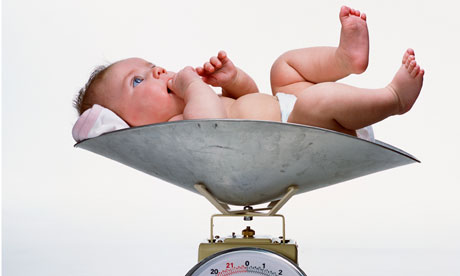
4. Low birth weight predicts type 2 diabetes
![]()
 A research published in Diabetologia says that low birth weight mediating bio markers could predict increased type 2 diabetes risk later in life.
“In this largest prospective cohort study of women in the United States, low birth weight was directly associated with the development of diabetes later in life,” Simin Liu, MD, ScD, of the Alpert Medical School at Brown University.
A research published in Diabetologia says that low birth weight mediating bio markers could predict increased type 2 diabetes risk later in life.
“In this largest prospective cohort study of women in the United States, low birth weight was directly associated with the development of diabetes later in life,” Simin Liu, MD, ScD, of the Alpert Medical School at Brown University.
![]() To investigate the relationship between low birth weight (LBW) and type 2 diabetes risk, along with the mediation effects of relevant biomarkers, Liu and colleagues looked at health records from the Women’s Health Initiative-Observational Study.
To investigate the relationship between low birth weight (LBW) and type 2 diabetes risk, along with the mediation effects of relevant biomarkers, Liu and colleagues looked at health records from the Women’s Health Initiative-Observational Study.
![]() The researchers measured baseline plasma concentrations of various type 2 diabetes biomarkers in this multi ethnic cohort of 1,259 women with incident type 2 diabetes and 1,790 controls. Self-reported birth weight was recorded; low birth weight was defined at <2.72 kg.
Women with LBW had a multivariable-adjusted OR of 2.15 (95% CI, 1.54-3) vs. those with birth weights between 3.63 and 4.54 kg.
The researchers measured baseline plasma concentrations of various type 2 diabetes biomarkers in this multi ethnic cohort of 1,259 women with incident type 2 diabetes and 1,790 controls. Self-reported birth weight was recorded; low birth weight was defined at <2.72 kg.
Women with LBW had a multivariable-adjusted OR of 2.15 (95% CI, 1.54-3) vs. those with birth weights between 3.63 and 4.54 kg.
![]() Insulin resistance, based on HOMA-IR, mediated 47% of the total effect. Elevated E-selectin concentration accounted for 25% of the total effect, decreased SHBG(Sex Hormone Binding Globulin) concentration for 24% and increased systolic blood pressure for 8% of the total effect of low birth weight on the risk of developing type 2 diabetes in future.
LBW is predictive of higher risk of type 2 diabetes later in life mainly mediated by insulin resistance which is explained by circulating levels of SHBG, E-selection and systolic BP.
Insulin resistance, based on HOMA-IR, mediated 47% of the total effect. Elevated E-selectin concentration accounted for 25% of the total effect, decreased SHBG(Sex Hormone Binding Globulin) concentration for 24% and increased systolic blood pressure for 8% of the total effect of low birth weight on the risk of developing type 2 diabetes in future.
LBW is predictive of higher risk of type 2 diabetes later in life mainly mediated by insulin resistance which is explained by circulating levels of SHBG, E-selection and systolic BP.
Read More
For enquiries info@jothydev.net.
Please visit: jothydev.net | research.jothydev.com | diabscreenkerala.net | jothydev.com/newsletter
